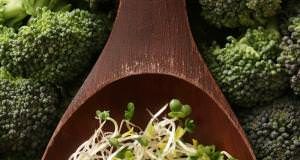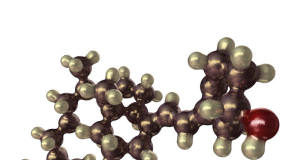Coordinating The Circadian Clock: Molecular Pair Controls Time-Keeping And Fat Metabolism
The 24-hour internal clock controls many aspects of human behavior and physiology, including sleep, blood pressure, and metabolism. Disruption in circadian rhythms leads to increased incidence of many diseases, including metabolic disease and cancer. Each cell of the body has its own internal timing mechanism, which is controlled by proteins that keep one another in check.
Olive Oil Could Guard Against Developing Ulcerative Colitis
Eating more olive oil could help prevent ulcerative colitis, according to a new study coordinated by medical researchers at the University of East Anglia (UEA).
Low-Carbohydrate, High-Protein Diets May Reduce Both Tumor Growth Rates And Cancer...
Eating a low-carbohydrate, high-protein diet may reduce the risk of cancer and slow the growth of tumors already present, according to a study published in Cancer Research, a journal of the American Association for Cancer Research. The study was conducted in mice, but the scientists involved agree that the strong biological findings are definitive enough that an effect in humans can be considered.
Possible Link Between Two Type 2 Diabetes Drugs And Pancreatic Cancer,...
Two newer drugs used to treat Type 2 diabetes could be linked to a significantly increased risk of developing pancreatitis and pancreatic cancer, and one could also be linked to an increased risk of thyroid cancer, according to a new UCLA study.
Caffeine Lowers Risk Of Skin Cancer: Coffee-Based Sunscreen Might Work Best
There might be a time when instead of just drinking that morning cup of coffee you lather it on your skin as a way of preventing harmful sun damage or skin cancer. A new Rutgers study strengthens the theory that caffeine guards against certain skin cancers at the molecular level by inhibiting a protein enzyme in the skin, known as ATR.
Experimental Drug Shows Promise Against Brain, Prostate Cancers
An experimental drug currently being tested against breast and lung cancer shows promise in fighting the brain cancer glioblastoma and prostate cancer, researchers at UT Southwestern Medical Center have found in two preclinical studies...
Sprouts? Supplements? Team Them Up To Boost Broccoli’s Cancer-Fighting Power
A new University of Illinois study provides convincing evidence that the way you prepare and consume your broccoli matters, and also suggests that teaming broccoli with broccoli sprouts may make the vegetable's anti-cancer effect almost twice as powerful.
Genetically Modified ‘Serial Killer’ T-Cells Obliterate Tumors in Leukemia Patients
In a cancer treatment breakthrough 20 years in the making, researchers from the University of Pennsylvania's Abramson Cancer Center and Perelman School of Medicine...
Seven In One Blow: Scientists Discover DNA Regions Influencing Prostate Cancer...
Doctors have known for a long time that prostate cancer "runs in the family." Men with relatives who have been diagnosed with prostate cancer have an elevated risk of also developing this type of cancer. It was only last year that DKFZ scientists calculated that this risk rises with the number of affected direct family members and also depends on the relatives' age at outbreak of the disease.
Markedly Higher Vitamin D Intake Needed To Reduce Cancer Risk, Researchers...
Researchers at the University of California, San Diego School of Medicine and Creighton University School of Medicine in Omaha have reported that markedly higher intake of vitamin D is needed to reach blood levels that can prevent or markedly cut the incidence of breast cancer and several other major diseases than had been originally thought.
Black Raspberries May Prevent Colon Cancer, Study Finds
Black raspberries are highly effective in preventing colorectal tumors in two mouse models of the disease, according to a University of Illinois at Chicago study. The findings are published in the November issue of Cancer Prevention Research.
Blood-Clotting Protein Linked To Cancer And Septicemia
Scientists in a collaboration between EMBL Heidelberg and the University of Heidelberg Medical Centre have discovered how stressed cells boost the production of the key blood-clotting factor, thrombin. Their work shows how cancer cells may be taking advantage of this process, and opens new possibilities for fighting back against cancer and septicemia.
















